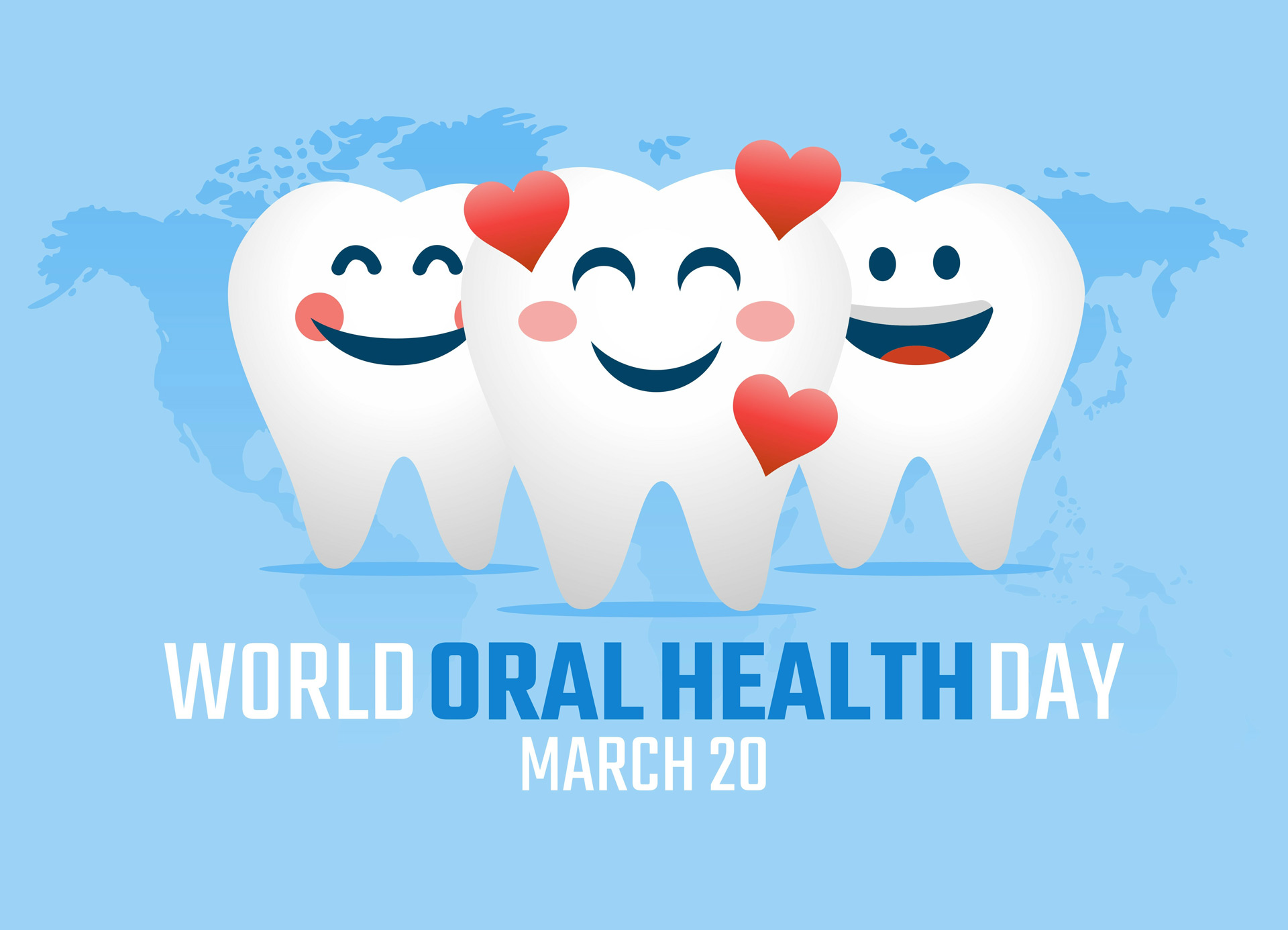World Oral Health Day is coming up on the 20th of March, so for this month’s blog we thought we’d shine a spotlight on why we feel this awareness day is so important to us all. We’ll also be exploring this year’s theme, “a happy mouth is a happy body”, and some of the surprising systemic diseases and health problems that have been connected to oral health.
Why World Oral Health Day is an important date in all our calendars
World Oral Health Day is an annual event organised by FDI World Dental Federation. While FDI is a Swiss-based initiative, their aim to unite the world in reducing the burden of oral diseases is more relevant to the UK now than ever. In 2023, statistics suggested that the unmet need for dentistry had risen to over 12 million people in England alone. This lack of access to dental care puts extra pressure on our hospitals and tooth decay has continued to go unchallenged as the number one reason for hospital admissions among young children.
On the World Oral Health Day website, they state that the burden of oral diseases affects individuals, health systems and economies everywhere, and the day aims to empower individuals, schools, oral health professionals, organisations and governments with the knowledge, tools and confidence to secure good oral health for themselves and the wider population.
A happy mouth is… a happy body!
Each year World Oral Health Day takes on a different theme, and this year the focus is “a happy mouth is a happy body”, raising awareness for the fact that a good oral hygiene routine leads to a healthier and happier life.
You might be surprised to learn that the benefits of clean and healthy teeth and gums go well beyond just your mouth. In the lead up to the 20th, FDI’s mascot, Toothie, will be embarking on a journey to learn about the significant connection between oral health and our overall wellbeing. So how is oral health connected to the overall health of our body?
5 ways oral health is connected to general health
- Heart health
People with gum disease are almost twice as likely to have heart disease than those without. This is thought to be due to bacteria from the mouth entering the bloodstream, which can cause clots and in turn lead to a heart attack. The connection between oral bacteria and blood clots is also why gum disease has been linked to strokes. - Lung health
Bacterial chest infections such as pneumonia are thought to be caused by breathing in droplets from the mouth that contain bacteria. Those that have gum disease will have a higher amount of bacteria in their mouths, making chest infections a more common occurrence. - Diabetes
People with diabetes are more likely to have gum disease, which is thought to be due to the fact that people with diabetes are more prone to infection. This is why it is incredibly important for those that don’t know they have diabetes to get a diagnosis. It is also vital that people with diabetes get any gum disease diagnosed before it can lead to complications. - Alzheimer’s Disease
There is growing research suggesting a direct connection between oral health and Alzheimer’s Disease. Studies on mice have found that mice exposed to periodontal bacteria developed neurodegeneration and inflammation similar to Alzheimer’s in humans. Consequently, the Alzheimer’s Association website recommends patients uphold a good oral hygiene routine to prevent gum disease. - Mental health
Evidence suggests that people who experience mental health problems also suffer with poor oral health. This can be due to neglect, as some mental illnesses prevent a person keeping up with a proper oral hygiene routine. Other causes can include anxiety surrounding dental visits, eating disorders that impact the health of teeth, and medications that have adverse oral effects. It is also possible for oral health problems to lead to poor mental health, as symptoms impact confidence, enjoyment of food and social life.
We make good oral health easy
It is clear that looking after your teeth is a vital part of maintaining a healthy body and mind, and good oral health doesn’t have to be difficult or expensive. A healthy oral hygiene routine includes brushing with a fluoride toothpaste last thing at night and one other time during the day, spitting and not rinsing after brushing, using floss or interdental brushes to clean between the teeth, limiting sugary foods and drinks, and visiting the dentist and hygienist regularly.
543 Dencare makes your visits to the dentist convenient and affordable. Our plans start at just £16.75 per month and cover all of your essential check-ups and hygiene appointments, as well as access to emergency dental care abroad and 20% off eligible treatments. Call us today on 07772 640585 to learn more.



